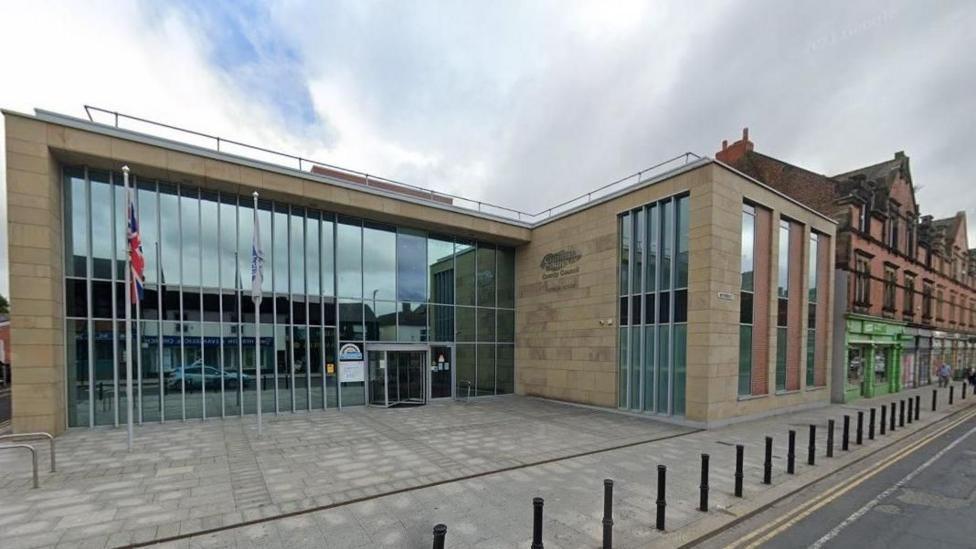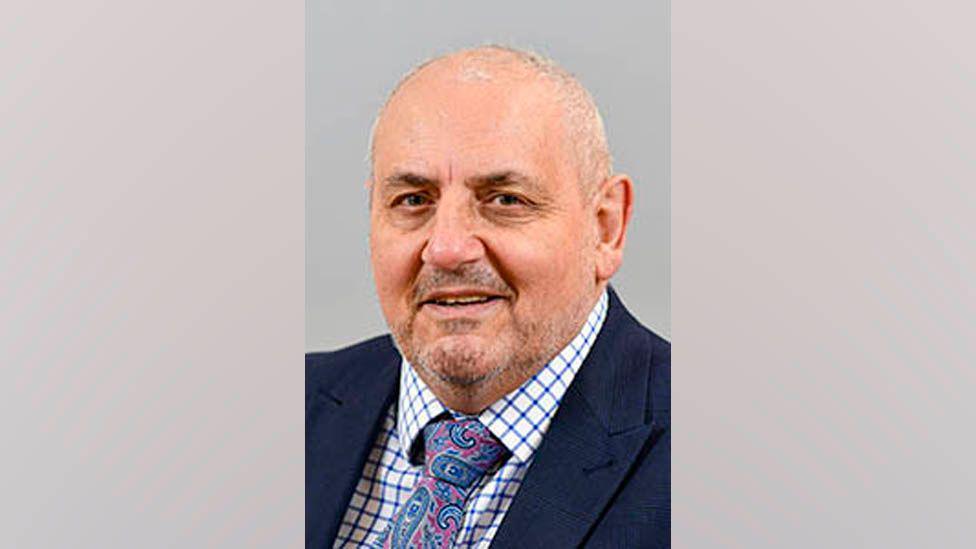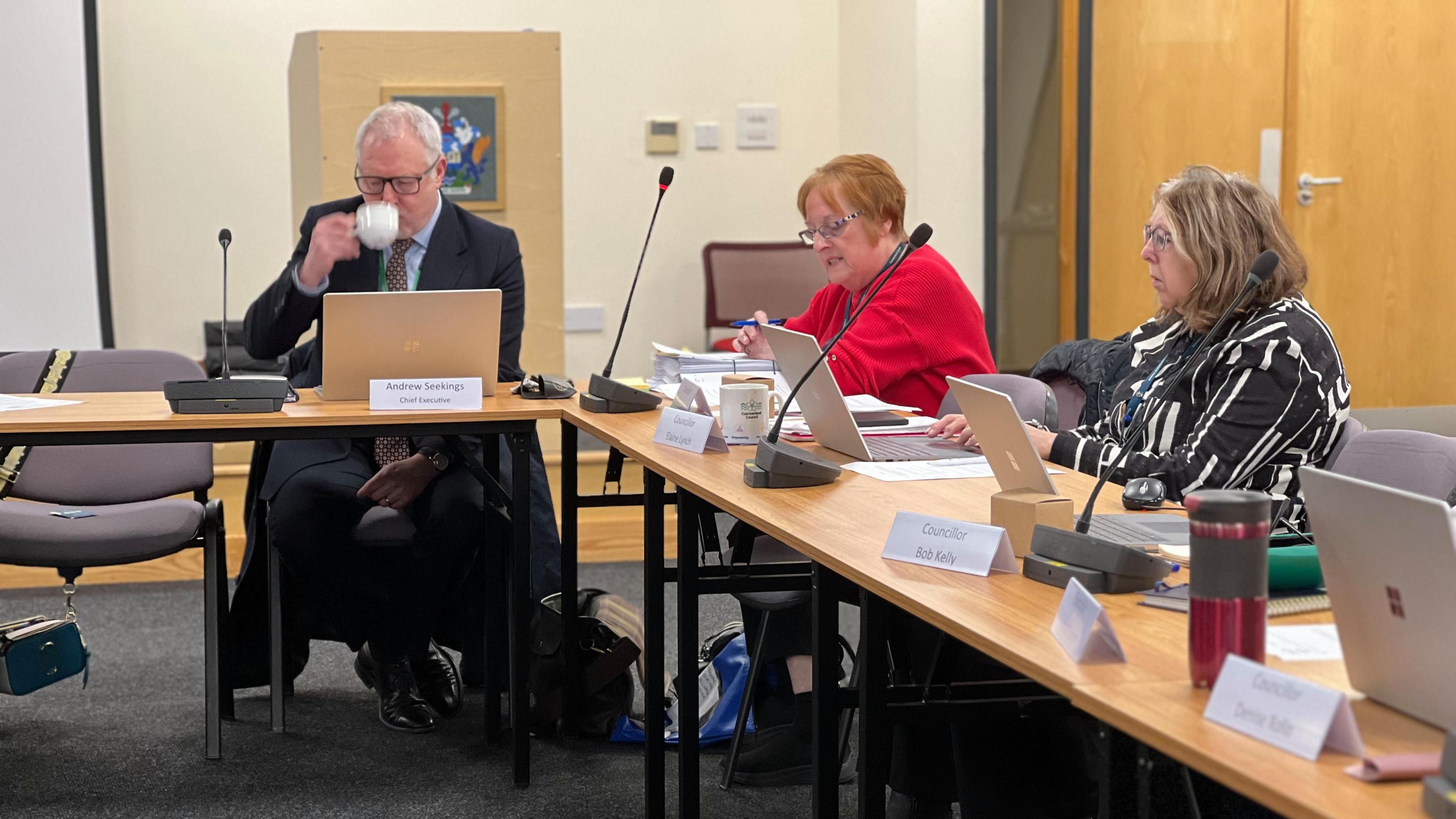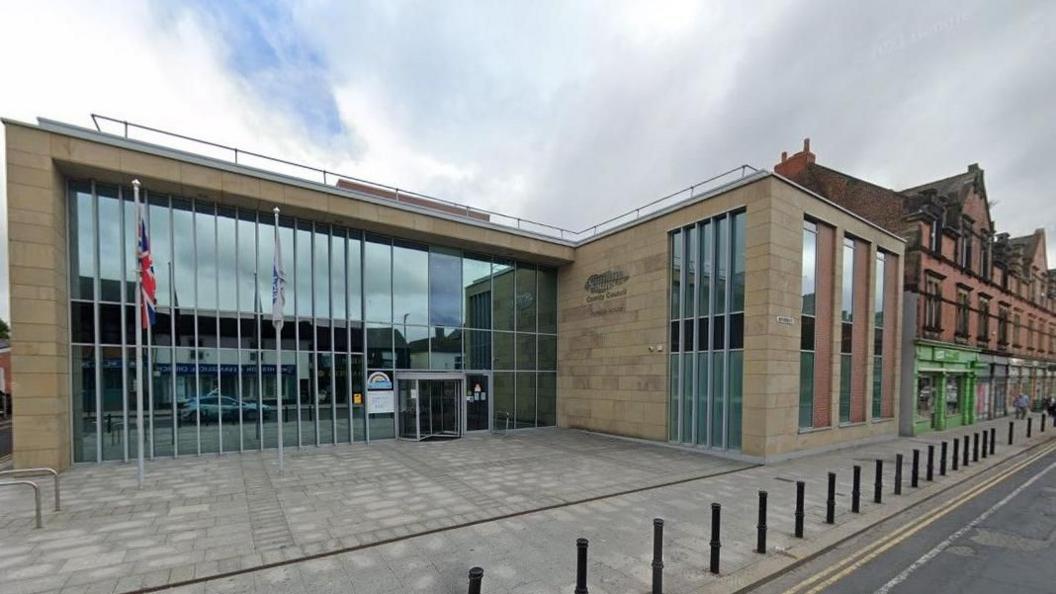Council pulls cash from arms firms supplying Israel

Cumberland Council is to withdraw its investments in companies which supply arms to Israel or support settlements in the Palestinian territories
- Published
A council has begun the process of withdrawing its investments from companies which supply arms to Israel.
Cumberland Council's leader Mark Fryer, Labour, said the decision had been made following the "disproportionate aggression" by the current Israeli government against the people of Gaza.
He has written to the council's chief executive, Andrew Seekings, to request the changes to the local authority's investments and for similar changes to be made to its pension scheme.
But local Conservative leader Mike Johnson accused Fryer of "trying to be foreign secretary" and said he should focus on council issues such as "the harsh financial pressures it is currently facing".
"Companies that the council would be boycotting would include, for example, BAE, JCB, Google and Airbnb," Johnson said.
"And every single penny of lost investment income from these companies into the pension fund will have to be made up by council taxpayers."

Cumberland Council leader Mark Fryer has asked for changes to also be made to the local authority's pension scheme
Fryer's request to divest from the Israel-linked companies follows on from a letter he sent to Prime Minister Sir Keir Starmer last month, in which he called for the government to take "any action necessary to secure an immediate lifting of aid restrictions" in Gaza and for a ceasefire to be encouraged.
The local Liberal Democrat and Green Party members supported the council's divestment plans, according to the Local Democracy Reporting Service.
Councillor Roger Dobson, Lib Dems, said his party fully supported "applying all legitimate pressure on the Netanyahu government to enable the delivery of vital humanitarian aid and to agree to an immediate ceasefire".
The Prime Minister has said the UK will recognise a Palestinian state in September unless Israel agrees to meet certain conditions, which include addressing the humanitarian crisis, implementing a ceasefire and reviving the prospect of a two-state solution.
But Starmer insisted the move did not mean he supported Hamas and said the "terrorist organisation" could play "no part in any future government".
Follow BBC Cumbria on X, external, Facebook, external, Nextdoor and Instagram, external.
Get in touch
Do you have a story suggestion for BBC Cumbria?
Related topics
- Published18 February

- Published16 February
